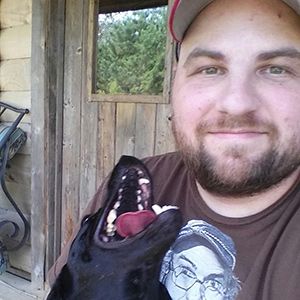Hey G-Town....
Topic 22090 | Page 1

I'll slip in here and reply real quick.
The company fleet is going to full automatic, but there are still company drivers in manual transmission trucks (I'm in an 8 speed). So it is strictly luck of the draw whether the mentor has one or the other.
No company terminal in Louisville, and I'm not aware of any drop yard there.
Terminal:
A facility where trucking companies operate out of, or their "home base" if you will. A lot of major companies have multiple terminals around the country which usually consist of the main office building, a drop lot for trailers, and sometimes a repair shop and wash facilities.

Chris is correct (thanks for pinch-hitting). Hit or miss on the Mentor's truck. Likely to be autoshift though.
Chris is correct (thanks for pinch-hitting). Hit or miss on the Mentor's truck. Likely to be autoshift though.
Cool. Thanks guys. I appreciate it. 😁
We have begun to compile a list containing the type of transmissions used by trucking companies and it also lists the transmissions different companies are using for training. We still have a lot of companies to cover yet so if anyone has information on a company that isn't on our list yet please let us know!
Type Of Transmissions Used By Trucking Companies
The Driver Services crew at the Jurupa Valley terminal is trying to discourage trainers from getting an auto if they can help it.
The claim is it is easier to get students and if the student wants to go local they need to be able to drive a manual. A lot of the local trucks in JV are manual.
Terminal:
A facility where trucking companies operate out of, or their "home base" if you will. A lot of major companies have multiple terminals around the country which usually consist of the main office building, a drop lot for trailers, and sometimes a repair shop and wash facilities.
I'm at the Swift Academy in Memphis every day. The trucks both on the backing range and in road training are all manual shift Volvos.
A year or as ago I spoke with a mentor who said Swift tries to keep mentors in manual shift trucks.
I'm at the Swift Academy in Memphis every day. The trucks both on the backing range and in road training are all manual shift Volvos.
A year or as ago I spoke with a mentor who said Swift tries to keep mentors in manual shift trucks.
Errol. 😁 How on Earth have ya been? We have missed ya on here. How's the instructor job at the academy goin for ya? Hopefully your students are listenin to your legendary advice and becomin successful at this job. 😁
M-m24 pats me on the back:
Errol. 😁 How on Earth have ya been? We have missed ya on here. How's the instructor job at the academy goin for ya? Hopefully your students are listenin to your legendary advice and becomin successful at this job. 😁
I'm turning into somewhat of a lurker recently. Partly time constraints of getting up at 3:30, 9 hours/day schedule, and almost weekly repair projects on my pickup.
As for school, I'm outside about 8 hours a day standing next to Volvo trucks + trailers explaining the finer points of backing up a five-story building that bends.
As a Swift Instructor I must follow certain guidelines in what & how I explain truck backing. To do this I have come up with several mental pictures to help explain things. Straight line backing involves a game of keep away as you keep each side of the truck from bending away from straight. Or how using a pull-up to "move" the trailer wheels over is similar to holding a kid by the hand and pulling him through a crowd.
I hope to some time put together a few how-to's to help CDL students get through the things they make you do in trucking school.
CDL:
Commercial Driver's License (CDL)
A CDL is required to drive any of the following vehicles:
- Any combination of vehicles with a gross combined weight rating (GCWR) of 26,001 or more pounds, providing the gross vehicle weight rating (GVWR) of the vehicle being towed is in excess of 10,000 pounds.
- Any single vehicle with a GVWR of 26,001 or more pounds, or any such vehicle towing another not in excess of 10,000 pounds.
- Any vehicle, regardless of size, designed to transport 16 or more persons, including the driver.
- Any vehicle required by federal regulations to be placarded while transporting hazardous materials.
New Reply:
New! Check out our help videos for a better understanding of our forum features

















Preview:








 TT On Facebook
TT On Facebook
I just read Bryan Q.s thread on him being ready for his mentor and it reminded me to ask ya: Is Swift for their OTR division still training students in manuals or have they made the full switch to automatics yet? Also do they have a dropyard or a terminal in Louisville, KY? I was just curious on these things. 😁
Terminal:
A facility where trucking companies operate out of, or their "home base" if you will. A lot of major companies have multiple terminals around the country which usually consist of the main office building, a drop lot for trailers, and sometimes a repair shop and wash facilities.
OTR:
Over The Road
OTR driving normally means you'll be hauling freight to various customers throughout your company's hauling region. It often entails being gone from home for two to three weeks at a time.